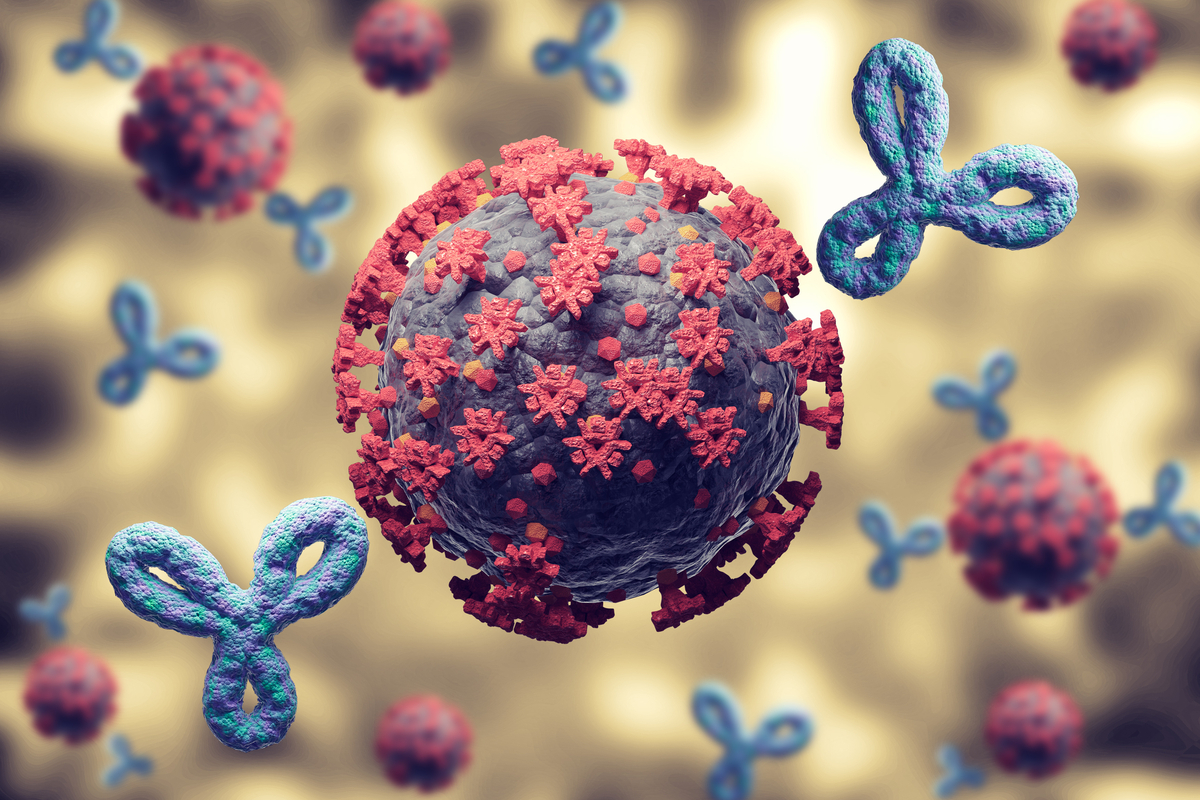Individuals with chronic kidney disease (CKD) are highly vulnerable to infections, which could even lead to death. Such patients are highly susceptible to infection with severe acute respiratory syndrome coronavirus 2 (SARS-CoV-2), the causative agent of the coronavirus disease-2019 (COVID-19) pandemic. Therefore, it is crucial to understand how effective vaccine-elicited antibodies are in providing neutralizing activity and their coverage of SARS-CoV-2 variants. This could be important to inform prophylactic and therapeutic COVID-19 interventions.
To address this gap in research, scientists studied plasma samples from 130 hemodialysis (HD) and 13 peritoneal dialysis patients and showed a poor neutralizing and rapidly decaying antibody response to mRNA vaccines in such individuals. This study is published in PLoS ONE.
 Study: Poor neutralization and rapid decay of antibodies to SARS-CoV-2 variants in vaccinated dialysis patients. Image Credit: Adao/Shutterstock
Study: Poor neutralization and rapid decay of antibodies to SARS-CoV-2 variants in vaccinated dialysis patients. Image Credit: Adao/Shutterstock
Background
COVID-19 vaccines have been instrumental in protecting against SARS-CoV-2 infection and, especially, severe COVID-19 disease. Across healthy and at-risk individuals, the mRNA-based vaccines developed by Pfizer/BioNTech (BNT-162b2) and Moderna (mRNA-1273) have shown high efficacy and safety. The exceptions were individuals with hematological malignancies, autoimmune diseases, and solid organ transplantations, as they did not mount a robust antibody response when vaccinated with these vaccines.
Research on HD patients revealed a delayed and lower serological response to vaccines. Scientists also observed a rapid decline of anti-SARS-CoV-2 antibodies. Taken together, these results imply a diminished vaccine response in end-stage kidney disease (ESKD) patients. Matters have been further complicated by the emergence of the SARS-CoV-2 Delta variant (B.1.617.2 lineage) since April 2021.
Key findings
The current study observed that dialysis patients fail to develop sufficient levels of neutralizing antibodies against emerging SARS-CoV-2 variants, even after being administered two doses of mRNA vaccines. Plasma SARS-CoV-2-specific IgG analysis revealed an overall response, to mRNA vaccines, in approximately 94% of dialysis patients. This finding is in line with other studies that report the range between 70% and 96%. In HD patients, reduced antibody responses were observed after both vaccination doses. Such analysis could help clinicians identify vaccine non-responders and form appropriate treatment strategies.
Researchers observed that 49% of the HD patients had low or negligible amounts of neutralizing antibodies and a significant reduction in neutralizing titers against SARS-CoV-2 variants. They computed that the fraction of non-responding patients was significantly higher at 77%, in the case of the SARS-CoV-2 Delta variant. This suggested that a large proportion of patients immunized with two doses of an mRNA vaccine might not develop a protective antibody response.
Follow-up data (up to 7 months after vaccination) showed a rapid decay of neutralizing antibodies. This was true both for the wild-type as well as the Delta variant. This further increased the percentage of non-responders to 84% and 90%, respectively. Scientists stated that they did not observe new cases of infection during the follow-up but could be largely driven by the low number of cases in Switzerland in the spring-summer season and the preventive measures taken by individuals.
A significant discrepancy was observed in the fraction of individuals identified as non-responders based on antibody levels and their neutralizing activity. Despite this, the correlation between these titers was high, implying that this could be utilized in defining appropriate cut-offs in the serological tests used in clinical settings to identify non-responders. Scientists stated that a SARS-CoV-2 avidity test could be used to identify non-responders, as for other infectious diseases.
It was especially observed in the case of HD patients that individuals who were never exposed to SARS-CoV-2 infection were at a much higher risk of poor antibody response after vaccination. This suggests that vaccination could boost neutralizing antibody responses in such patients after infection. The Moderna vaccine was more reactogenic and induced higher antibody titers in all individuals, compared to the Pfizer-BioNTech vaccine. This could be driven by the higher mRNA provided by one dose of the former.
Limitations
One of the major limitations of this study is a lack of a suitable control group. The results could be more robust in the presence of a control group matched on all parameters (age, gender, comorbidities, etc.), except ESKD. The number of PD patients was also quite low for meaningful inference, and the sampled patients were not balanced with respect to the type of mRNA vaccine they had received.
Conclusion
The findings documented in the current study echo the need for an additional high-dose booster mRNA vaccine among dialysis patients. This would need to be monitored with appropriate serological tests. The results also imply that certain individuals may not respond as desired to the additional boost. Such individuals should be considered for alternative treatment strategies, such as early immunotherapy with monoclonal antibodies.